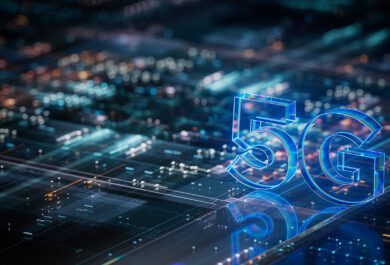When an emergency arises, people in the United States and Canada know instinctively the next step is to call 911. For nearly 60 years, these three numbers have represented an emergency response system designed to have appropriate first responders on the scene in minutes.
For over three decades, Comtech has been one of the most trusted 911 and public safety service providers across the globe. In fact, leaders in Comtech’s Terrestrial and Wireless business like to describe the segment by saying, “we enable the most important call you will ever make.”
But what if the emergency requires a mental health specialist? Last summer, a new three-digit telephone number (988) was introduced in North America to provide immediate support and intervention in cases of suicidal behavior or substance abuse, among other mental health crises.
According to the 988 website, “When people call, text, or chat with the 988 Lifeline, they are connected to trained counselors that are part of the existing 988 Lifeline network, made up of over 200 local crisis centers. These counselors are trained to provide free and confidential emotional support and crisis counseling to people in suicidal crisis or emotional distress and connect them to resources.”
The 988 Suicide and Crisis Lifeline received more than 96,000 calls, texts and chats the week it first went live in July of 2022. And while the Suicide and Crisis Lifeline has made great progress over the last year, the service is continuing to smooth out technical glitches and improve the average time it takes a mental health counselor to answer an incoming call.
Comtech’s Chief Growth Officer, Nicole Robinson, believes Comtech can help overall emergency response operations with the integration of 988 and 911 platforms.
“988 presents an opportunity to weave the national mental health safety net of the lifeline into the fabric of the crisis care continuum,” said Nicole. “In our view, increased collaboration between 911 systems and 988 can provide more options for those facing a crisis.”
Comtech is known for its first-to-market reputation in public safety—leading the charge on the adoption of next-generation systems and technologies. As the United States makes a new push on 988 services, the company sees the potential integration of 988 and 911 as one more way it can help address some of its customers toughest public safety challenges.
Nicole noted that integrating 988 with 911 emergency response, such as dispatching specialized mobile teams to individuals in a mental health crisis, “can help improve comprehensive services and create greater coordination of tailored care options like crisis stabilization units.”
This integration can also reduce operator burden and improve response times for 988 services. With a rapid increase in calls since 988 launched, it’s clear more people are reaching out for help with mental health emergencies, but the last year also shed light on some of the key challenges presented for the 988 Suicide and Crisis Lifeline.
According to a recent article, “Although there are marked differences in states’ and territories’ (988) call answer rates, demand has largely outpaced local call centers’ capacity to pick up the phone within a certain time frame to avoid callers being rerouted to a national network. When that happens, national operators may not be as well-equipped as their local counterparts to provide information for crisis care services near the caller.”
One example of the burden local 988 call centers are facing can be seen in Louisiana. Nearly 14% of the 5,065 988 calls made across Louisiana went unanswered by in-state counselors between April and May, according to a new analysis from health research outlet KFF.
Another key challenge for the 988 service is identifying the exact location of a caller.
“Today, 988 calls are area code dependent,” said Nicole. “When someone dials 988 from their personal cell phone, the 988-dispatch center may be able to identify the caller’s location based solely on the area code of the phone being used. This can create a significant challenge if someone experiencing a mental health crisis is traveling or using an out of state area code when a mental health professional needs to be dispatched to the scene.”
Comtech’s has over 30 years of experience integrating precise location-based services as part of its integrated call handling and public safety solutions, and the company sees broad applicability of this expertise to 988 emergency response services.
“We are in the early stages of integrating our 911 and 988 systems to explore potential location-based routing services for 988 callers,” said Nicole. “Comtech’s deployed public safety systems provide differentiated precise location-based technologies that improve the accuracy of call routing and comprehensive emergency response capabilities. We see our location-based technologies as one more way we might enhance 988 services.”
As one of the most trusted providers of public safety services and technologies, Comtech’s comprehensive emergency service systems can accelerate the adoption of next generation public safety technologies across the globe. The company’s public safety systems are designed to adapt and continuously evolve over time to meet the needs of emerging use cases, like the integration of 988.
For more information, visit Comtech at APCO booth 729 for demonstrations and discussions on how the company is enabling the future of emergency response.
Forward Looking Statements
Certain information in this blog contains statements that are forward-looking in nature and involve certain significant risks and uncertainties. Actual results and performance could differ materially from such forward-looking information. The Company’s Securities and Exchange Commission filings identify many such risks and uncertainties. Any forward-looking information in this press release is qualified in its entirety by the risks and uncertainties described in such Securities and Exchange Commission filings.


